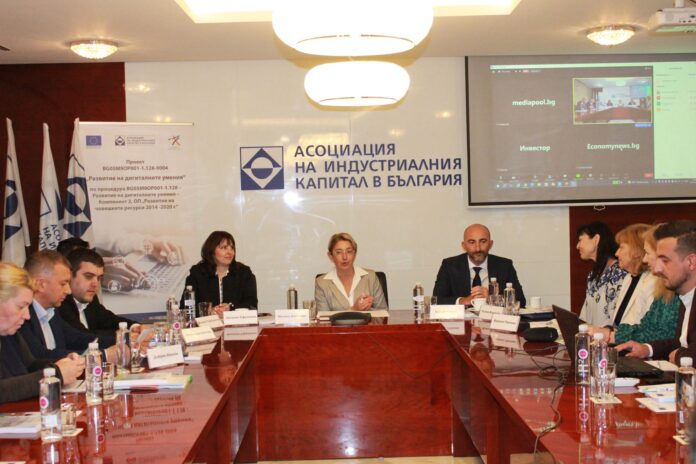
Bulgarian Ministry of Labor and Social Policy analyses show that in the upcoming years, 90% of workplaces in Bulgaria will require employees to master digital skills.
Deputy Minister of Labor and Social Policy Natalia Efremova said this during a press conference organized by the Association of Industrial Capital in Bulgaria (AIKB) regarding implementing the Digital Skills Development project.
At the same time, according to data from the Digital Economy and Society Index (DESI), just over 30% of the Bulgarian population has basic digital skills. Efremova stressed that European Year of Skills initiatives are expected to help achieve Europe’s goals by 2030. about 80% of the population of the old continent possess basic digital skills.
Efremova stressed that the AIKB project is part of a larger puzzle that the Ministry of Labor and Social Policy (MTSP) is putting together with the Employment Agency, Ministry of Education and Science (MES), National Agency for Vocational Education and Training, social partners and all stakeholders.
The Deputy Minister recalled that MTSP is implementing several essential steps to prepare the workforce for the digital transition. The provision of electronic vouchers has created easy access to training. Work is underway to deploy an e-distance learning platform, providing access to training for professional qualifications and critical competencies.
At the same time, the MES, in partnership with stakeholders, is implementing legislative reform in vocational education, training and qualification to create a faster way to acquire skills so that workers and employees are more adaptable to changes in the labour market.
“We are in a super-accelerate development of human civilization. The last 200 years equate to the development of human civilization up to these 200 years,” said the head of the Managing Body of the Human Resource Development Program, Tsvetan Spasov.
“We must prepare society for new challenges because, without digital skills, we will be unprepared for the future,” Spasov said adamantly. He cited analyses that show that 65% of first-graders today will work in professions that do not yet exist.
“If we do not plan how to develop the workforce’s digital skills, we will be at a disadvantage not only among other EU Member States but globally,” the head of the RCHR’s Governing Body commented. He stressed that the following steps to achieve this goal will be planned with social partners.
